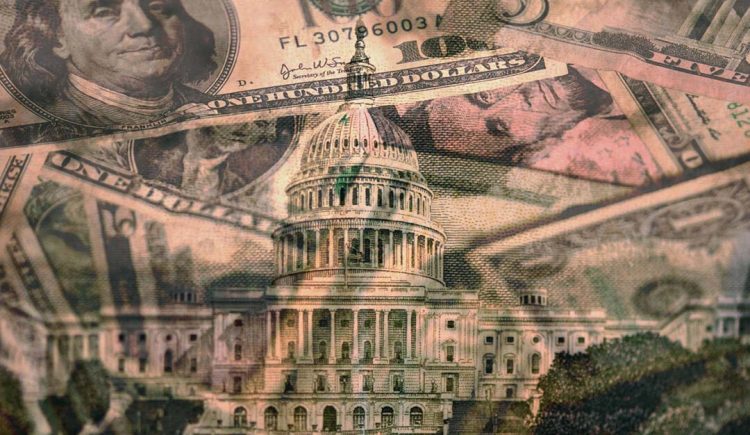Democrats and Republicans reached a temporary debt ceiling deal today to extend the government’s borrowing limit and avoid a federal default. If Congress had not raised the debt ceiling, the amount of debt the U.S. federal government can have outstanding, a default period could have led to disastrous consequences for real estate, leading to furloughed federal employees or even requests that staff keep working unpaid, with a large IOU looming over their heads, according to some scholars.
In order to avoid a U.S. credit default, Congress had until Oct. 18 to decide how much the debt limit should be increased. A Senate aide told news outlets they will be temporarily expanding the debt ceiling by $480 billion—the level the Treasury Department says it needs to get the government through to Dec. 3
Another hurdle could pose further challenges in just a few months. Lawmakers will need to consider further government funding actions by December before adjourning for the holidays or risk a shutdown.
According to Florida REALTORS®, a government shutdown could have devastating impacts on the industry, including:
– Delays in approving National Flood Insurance Program policies, making it difficult for those purchasing homes in flood zones to close on their home.
– In past shutdowns, Department of Housing and Urban Development (HUD) employees have been furloughed. This could lead to staff shortages at the FHA, delaying loan approvals and funding.
– Rural housing loans could also be put at risk, with potential shutdowns for the U.S. Department of Agriculture delaying or outright halting new rural housing Direct Loans or Guaranteed Loans.
– The Internal Revenue Services could shutdown as well, delaying homebuyers and lenders who need tax-return transcripts in order to close deals.
– The Government Sponsored Enterprises (GSEs) would likely resume as normal during a government shutdown as Fannie Mae and Freddie Mac don’t rely on appropriated funds. However, lenders would still likely need federal verification of Social Security numbers and IRS tax transcripts in order to purchase the loans.
Following a meeting at the White House with President Biden to talk about the debt ceiling, the National Association of REALTORS® said it was optimistic about the potential deal on Wednesday, releasing the following statement from President Charlie Oppler:
“NAR is encouraged by reports Congressional leaders are working on a short-term debt ceiling extension following our meeting. With more than $8 trillion in mortgage debt backed by the federal government, the real estate sector is highly susceptible to market instability,” said Oppler. “A debt default would unleash unnecessary and unknown harm on the economy and our 1.5 million members, most of whom are small business owners. And rising interest rates would serve a devastating blow to the homeownership dreams of countless American families. We encourage Congress to keep working on a long-term debt ceiling solution to maintain stability and faith in the American economy.”
This is a developing story. Stay tuned to RISMedia for updates.
 Liz Dominguez is RISMedia’s senior online editor. Email her your real estate news ideas to lizd@rismedia.com.
Liz Dominguez is RISMedia’s senior online editor. Email her your real estate news ideas to lizd@rismedia.com.











